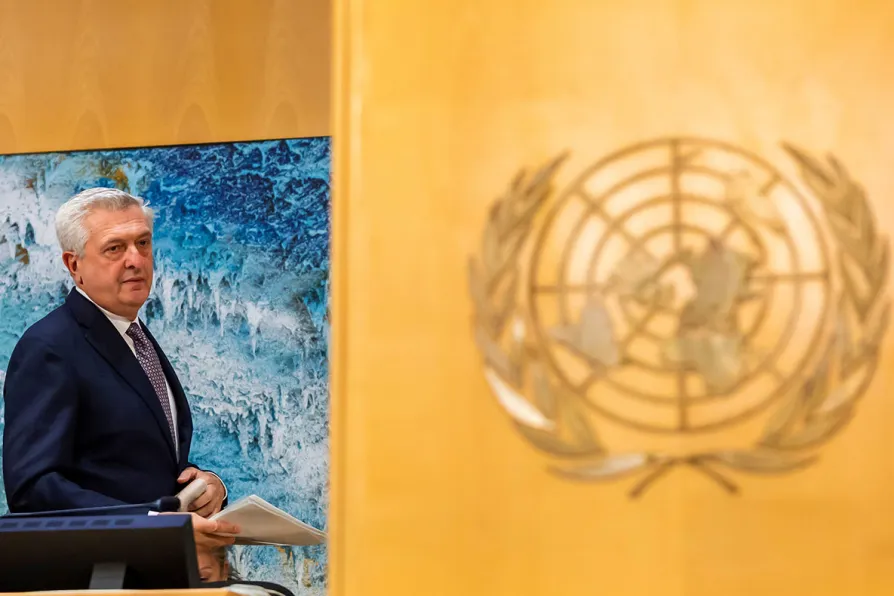
 Filippo Grandi, UN High Commissioner for Refugees (UNHCR), attends UNHCR's 76th annual Executive Committee meeting at the European headquarters of the United Nations in Geneva, Switzerland, October 6, 2025 [Photo: Salvatore Di Nolfi/Keystone via AP]
Filippo Grandi, UN High Commissioner for Refugees (UNHCR), attends UNHCR's 76th annual Executive Committee meeting at the European headquarters of the United Nations in Geneva, Switzerland, October 6, 2025 [Photo: Salvatore Di Nolfi/Keystone via AP]
THE head of the United Nations refugee agency has accused the United States of using deportation practices that violate international law, while also criticising a wider “backlash” in some countries against migrants and refugees.
UN high commissioner for refugees Filippo Grandi said on Monday that drastic funding cuts and shortages had forced his agency to slash nearly 5,000 jobs this year, equating to nearly a quarter of the workforce. The cuts may not be over, he warned.
“This was certainly not an easy year for any of us,” Mr Grandi told the executive committee of the Office of the United Nations High Commissioner for Refugees (UNHCR) as it began its annual meeting. “But remember, please, there has never been an easy year to be a refugee — and there never will be.”
At the UN general assembly last month, the administration of US President Donald Trump — which has slashed its funding for international humanitarian aid this year — claimed that the global system of seeking asylum has been abused and needs reform, in part by cracking down on migration.
Other traditional donors have cut back their payments to the UNHCR this year.
In recent years, the agency has received roughly $5 billion (around £3.7bn) a year — half its budgetary requirements — even as conflict and repression in countries such as Afghanistan, Myanmar, Sudan, Venezuela and Ukraine have led the number of people fleeing their homes to roughly double over the last decade, now reaching 122 million.
In the politically charged environment of today, Mr Grandi said, “putting the [UN] refugee convention and the principle of asylum on the table would be a catastrophic error.”
“National sovereignty and the right to seek asylum are not incompatible; they are complementary,” he added.
Mr Grandi, whose term ends at the end of this year, decried an erosion of respect for international law in certain developed countries and noted that most refugees are taken in by poorer nations.
“I am worried that the current debate, in Europe, for example, and some current deportation practices, such as in the US, address real challenges in manners not consistent with international law,” he said.
US State Department spokesman Tommy Pigott defended his country’s immigration and migration policies and described President Trump’s speech to the UN as “a call to action against the destructive policies promoting mass and illegal migration that globalist bureaucrats have pushed for years.”










